HVAC Companies Audley
Best HVAC Services in Audley
Get up to 3 AC and Heating Services quotes for your project today! Compare profiles, reviews, accreditations, portfolio, etc... and choose the best service.
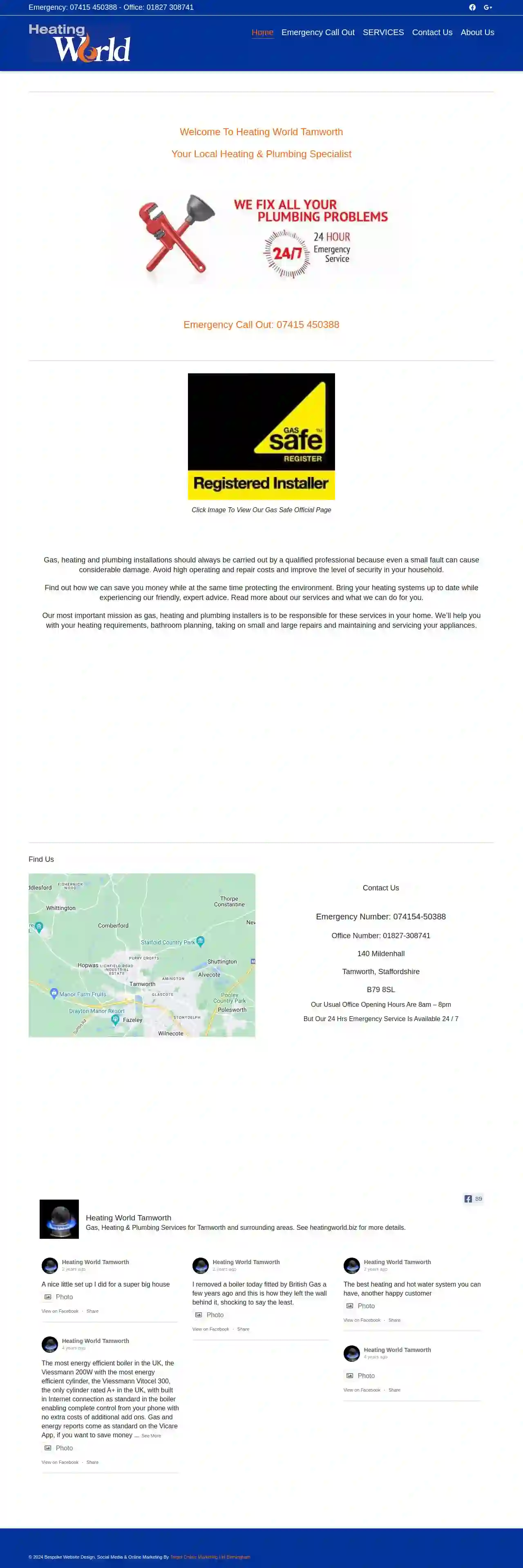
Heating World Tamworth - Emergency Heating & Plumbing Repairs
3.86 reviews140 Mildenhall, Tamworth, B79 8SL, GBHeating World Tamworth is your local expert for gas, heating, and plumbing services in Tamworth and the surrounding areas. We pride ourselves on providing a friendly and expert service, ensuring your heating requirements, bathroom planning, small and large repairs, and appliance maintenance and servicing are handled with care. Our mission is to be responsible for these services in your home, helping you save money while protecting the environment. We bring your heating systems up to date with the latest technology and offer advice tailored to your needs. Choose Heating World Tamworth for reliable, professional service.
- Services
- Why Us?
- Accreditations
- Our Team
- Testimonials
- Gallery
Get Quote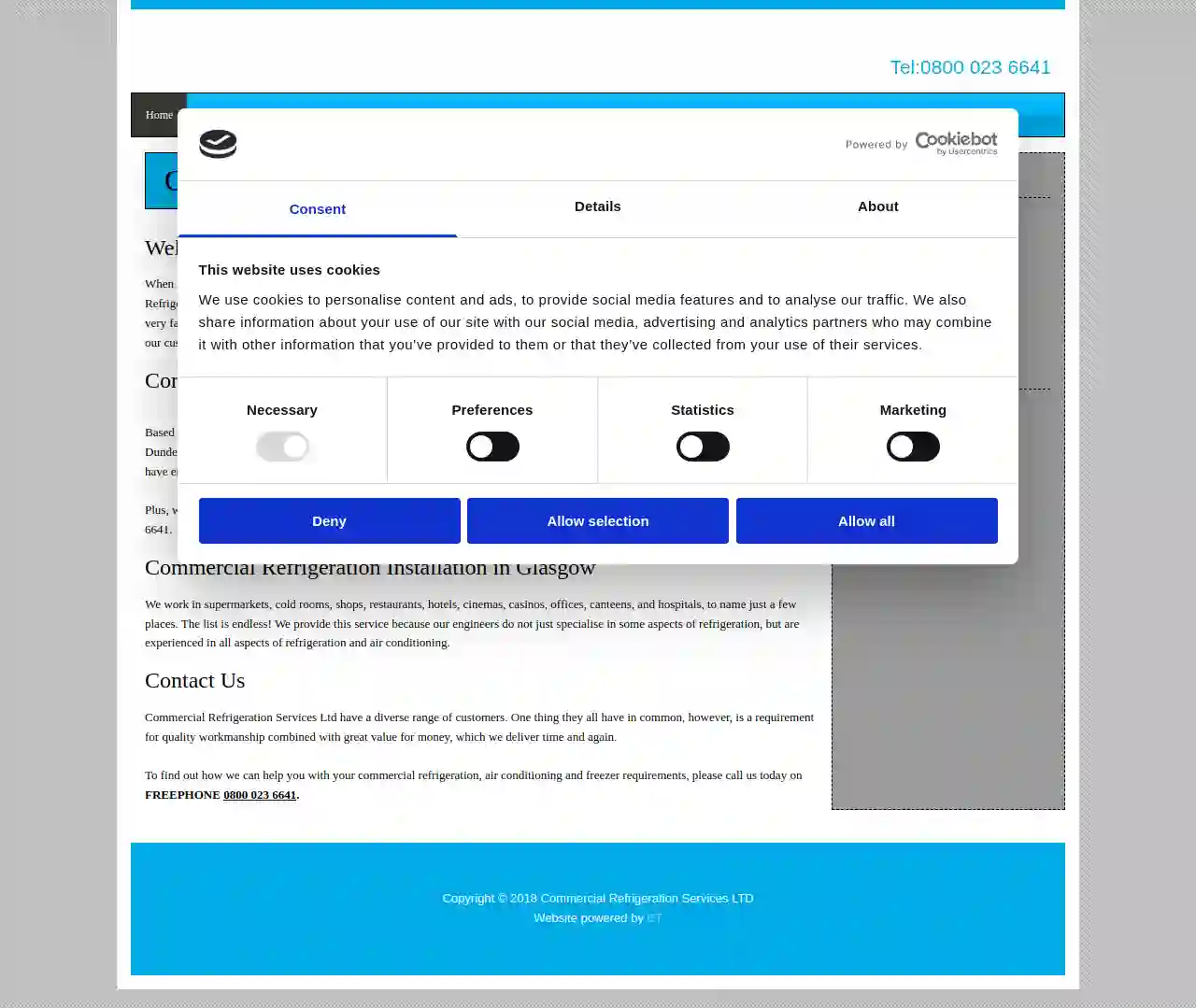
Commercial Refrigeration Services
3.73 reviewsTownhill, Dunfermline, 25 Green Street, KY12 0HE, GBCommercial Refrigeration Services Ltd is a company based in Fife, Scotland, that has been providing refrigeration and air conditioning services since 2009. They specialize in servicing, maintaining, and installing a wide range of refrigeration units, including cabinets, air conditioning units, and freezers. The company covers Central Scotland, including Edinburgh and the Lothians, Glasgow and the Strathclyde areas, Stirling, Falkirk, Dundee, and Perth. They pride themselves on providing a first-rate service to all their customers and offer complete service packages, maintenance contracts, and a 24-hour emergency call-out service. Their engineers are experienced, FGAS registered, and some are also Care Gas certified, allowing them to work on R290 refrigerant cabinets.
- Services
- Why Us?
- Accreditations
- Gallery
Get Quote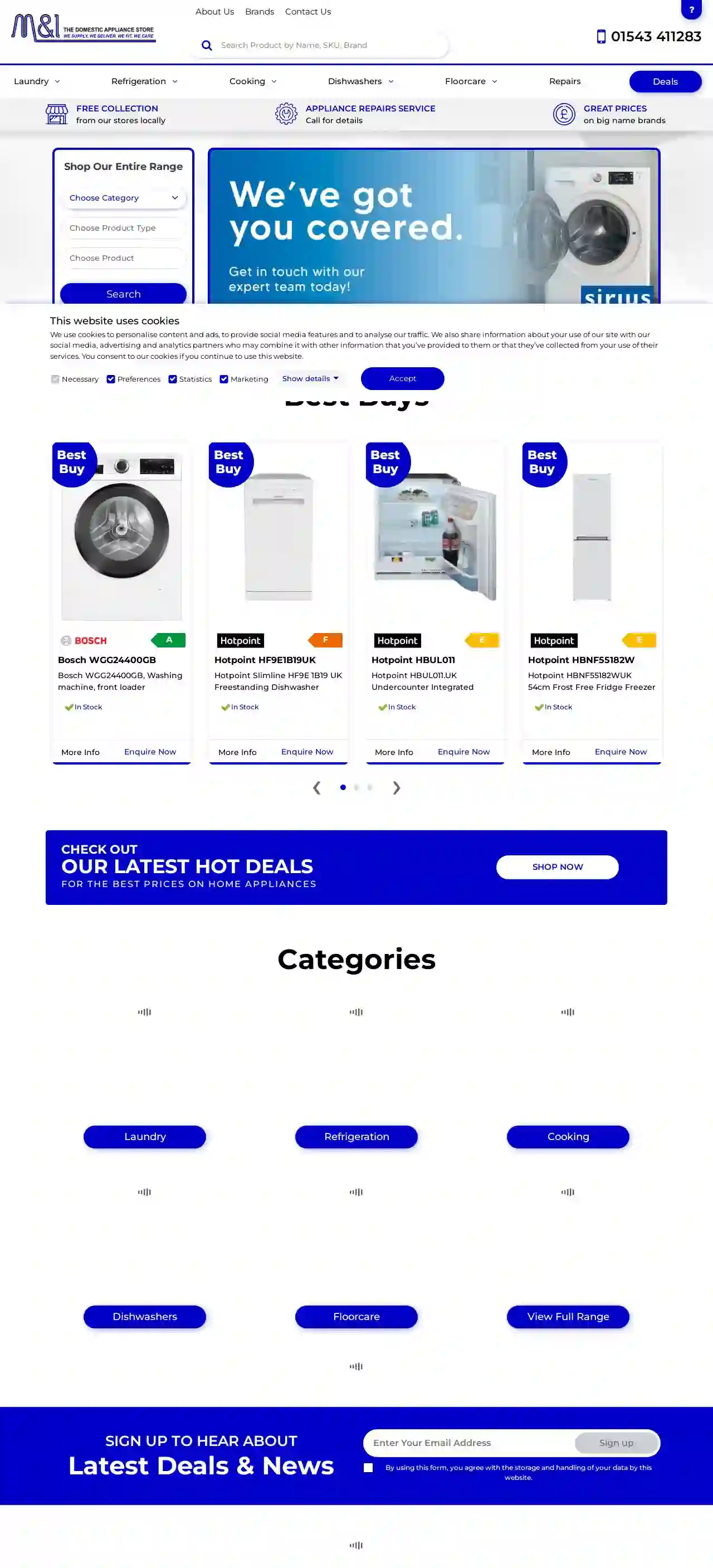
M & I The Domestic Appliance Store
4.339 reviews13a St John Street, Lichfield, WS13 6NU, GB- Services
- Why Us?
- Accreditations
- Gallery
Get Quote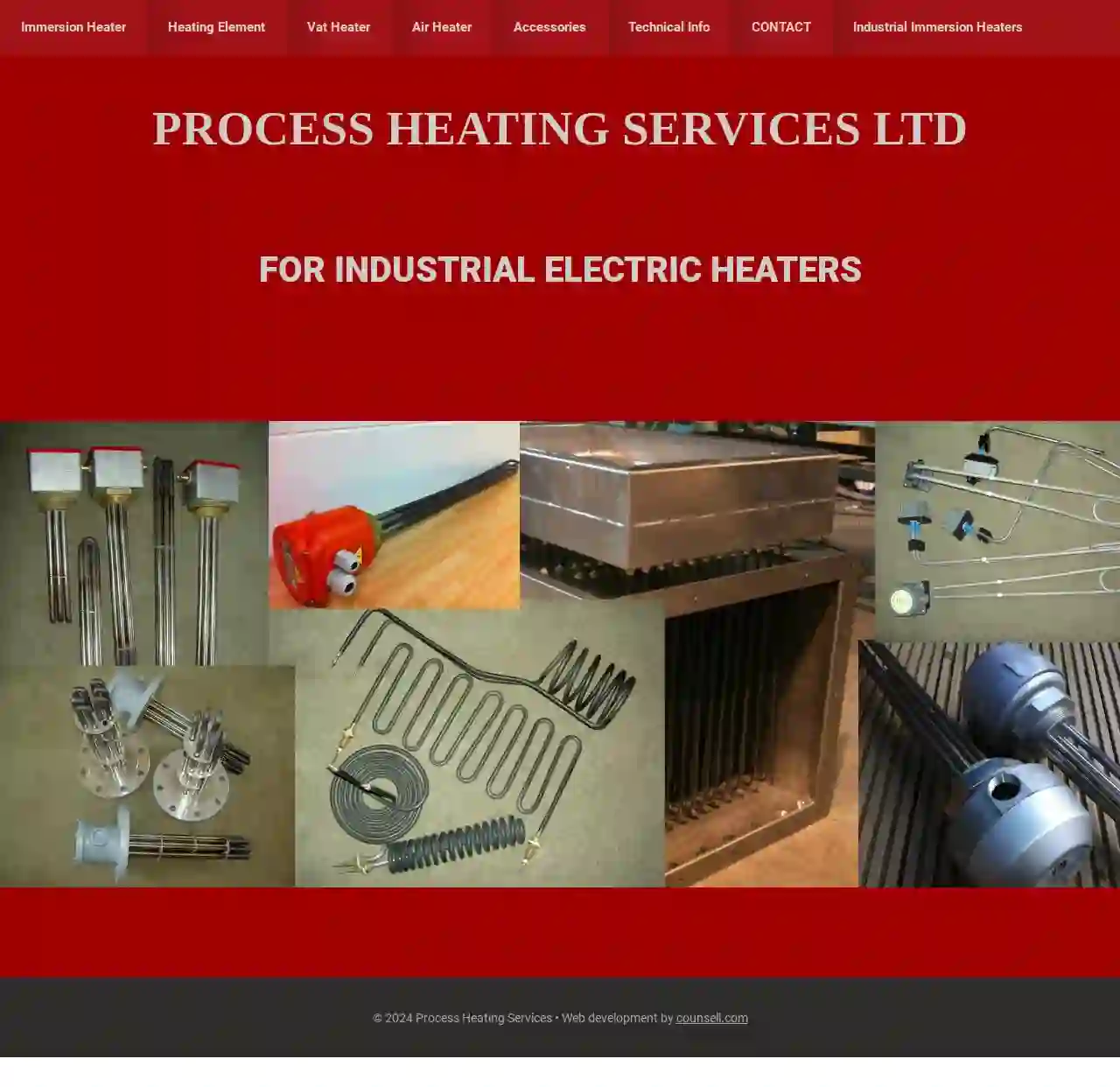
Process Heating Services Ltd
543 reviewsLichfield, GBProcess Heating Services Ltd. is a leading provider of industrial electric heaters. With a wide range of products, including acid immersion heaters, alkali immersion heaters, air heaters, and more, we cater to diverse industrial heating needs. Our commitment to quality, reliability, and customer satisfaction has made us a trusted name in the industry. We offer expert design consultations, technical support, and next-day delivery on stock items. Contact us today to discuss your heating requirements and experience the Process Heating Services difference.
- Services
- Why Us?
- Our Team
Get Quote
C P Durston Plumbing & Heating
Lichfield, GBC.P. Durston Plumbing, Heating & Bathrooms specialize in all aspects of plumbing, central heating, bathroom refurbishment and are dedicated in providing a professional, efficient and reliable service. Our plumbing and central heating engineers are available from 6am to 9pm daily. We are a professional business, fully insured and licensed. All works are carried out by experienced, qualified tradesmen.
- Services
- Why Us?
- Gallery
Get Quote- Ch
Choice Heating Ltd
55 reviewsTamworth, GB- Services
- Why Us?
- Gallery
Get Quote 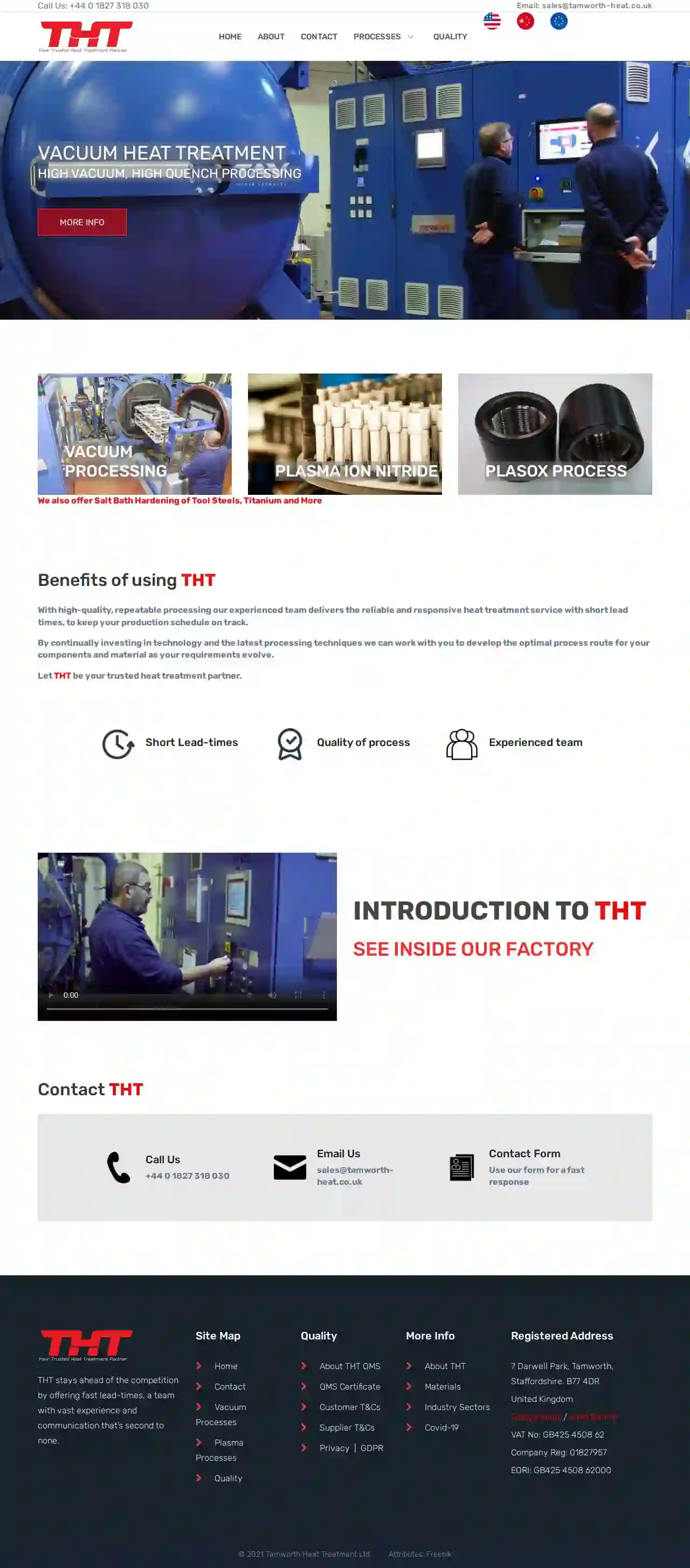
Tamworth Heat Treatment
52 reviews7 Darwell Park, Tamworth, B77 4DR, GBTamworth Heat Treatment (THT) is a leading provider of high-quality heat treatment services in the UK. With a commitment to excellence and innovation, we offer a comprehensive range of vacuum and plasma processes to meet the demanding needs of various industries. Our experienced team utilizes state-of-the-art technology and the latest processing techniques to deliver reliable and responsive service with short lead times. We pride ourselves on our ability to work closely with our customers to develop the optimal process route for their components and materials, ensuring consistent quality and performance. THT is dedicated to sustainability and utilizes 100% renewable energy in our operations. Our services include: Vacuum Heat Treatment: High Vacuum, High Quench processing Plasma Processing: Ion Nitride and Nitro-Carburise treatments Vacuum Processing: Plasma Ion Nitride, PlasOx process Salt Bath Hardening of Tool Steels, Titanium and More We are proud to be a trusted partner for businesses across a wide range of sectors, including motorsport, aerospace, and automotive. Our commitment to quality, innovation, and customer satisfaction has earned us a reputation for excellence in the heat treatment industry.
- Services
- Why Us?
- Gallery
Get Quote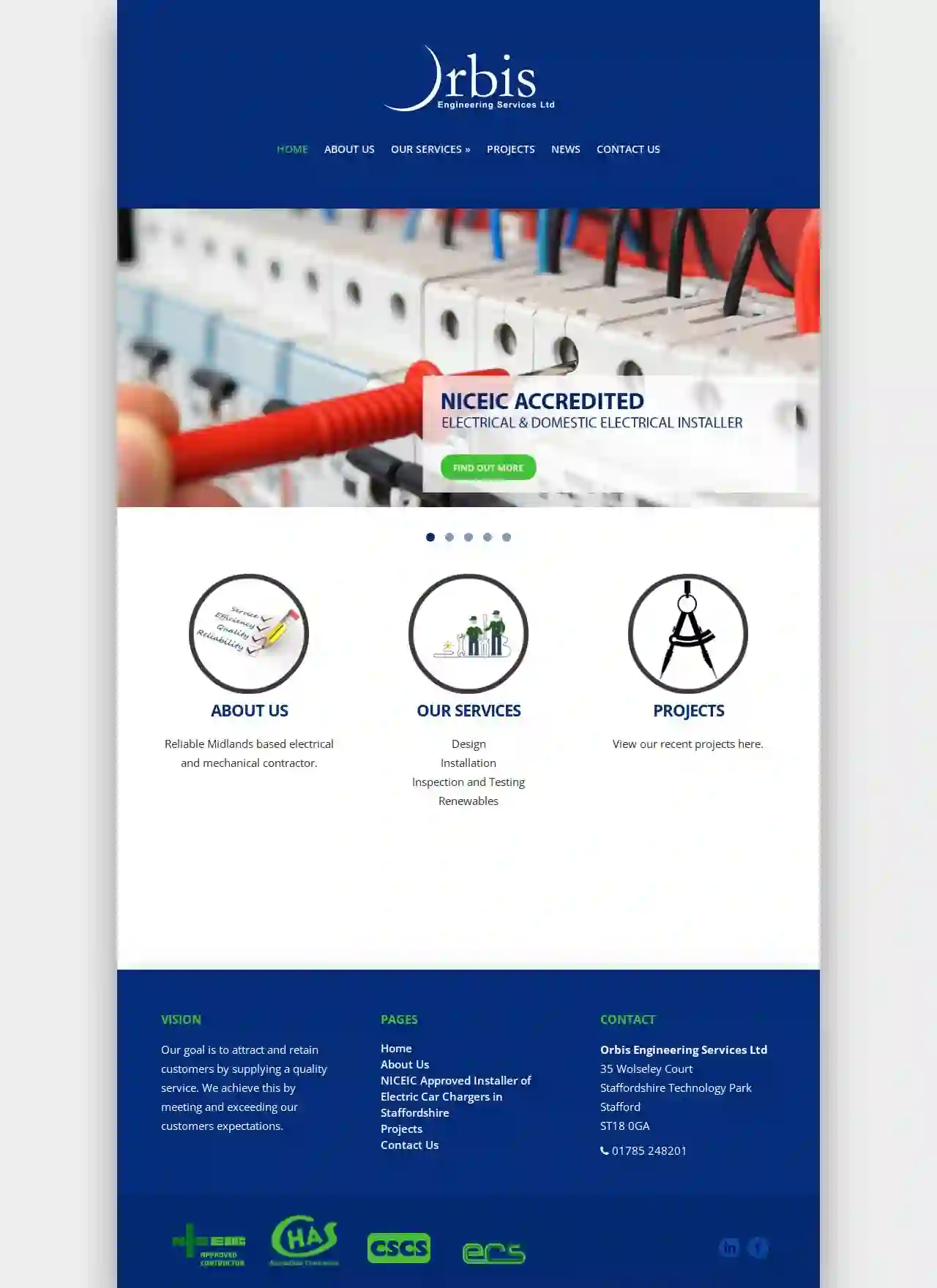
Orbis Engineering Services LTD
Staffordshire Technology Park, 35 Wolseley Court, Stafford, ST18 0GA, GBOrbis Engineering Services Ltd is a reliable Midlands based electrical and mechanical contractor. With over 15 years' experience in the electrical contractor industry, we understand that there is a great diversity when it comes to electrical installation requirements. We offer a comprehensive range of services, including design, installation, inspection and testing, maintenance and repair, and EV charger installation. Our team of electrical contractors has the knowledge, experience, and skills to provide a professional and comprehensive service to ensure that your home or business is safe and efficient. We are NICEIC and CHAS accredited, and every member of our team carries a CSCS card as standard. We service areas such as Stafford, Stoke on Trent, and Wolverhampton.
- Services
- Why Us?
- Accreditations
- Gallery
Get Quote
Gas Services Tamworth Ltd
4.716 reviewsClaymore, Wilnecote, Tamworth, Unit 1 Sterling Park, B77 5DQ, GBAt GST Home Services, we take pride in providing comprehensive home services to homeowners, landlords and businesses. Our highly trained staff undertake Servicing, Repairs, Installation and Maintenance. We are Worcester accredited installers and can offer up to 12-year guarantee* for peace of mind. Protect your home with our heating care plans from £7.50 per month. We are always happy to help and offer a quick response, fully accredited engineers, experienced & knowledgeable staff and 1st class customer service. We also operate a 24/7 emergency callout service.
- Services
- Why Us?
- Accreditations
- Testimonials
- Gallery
Get Quote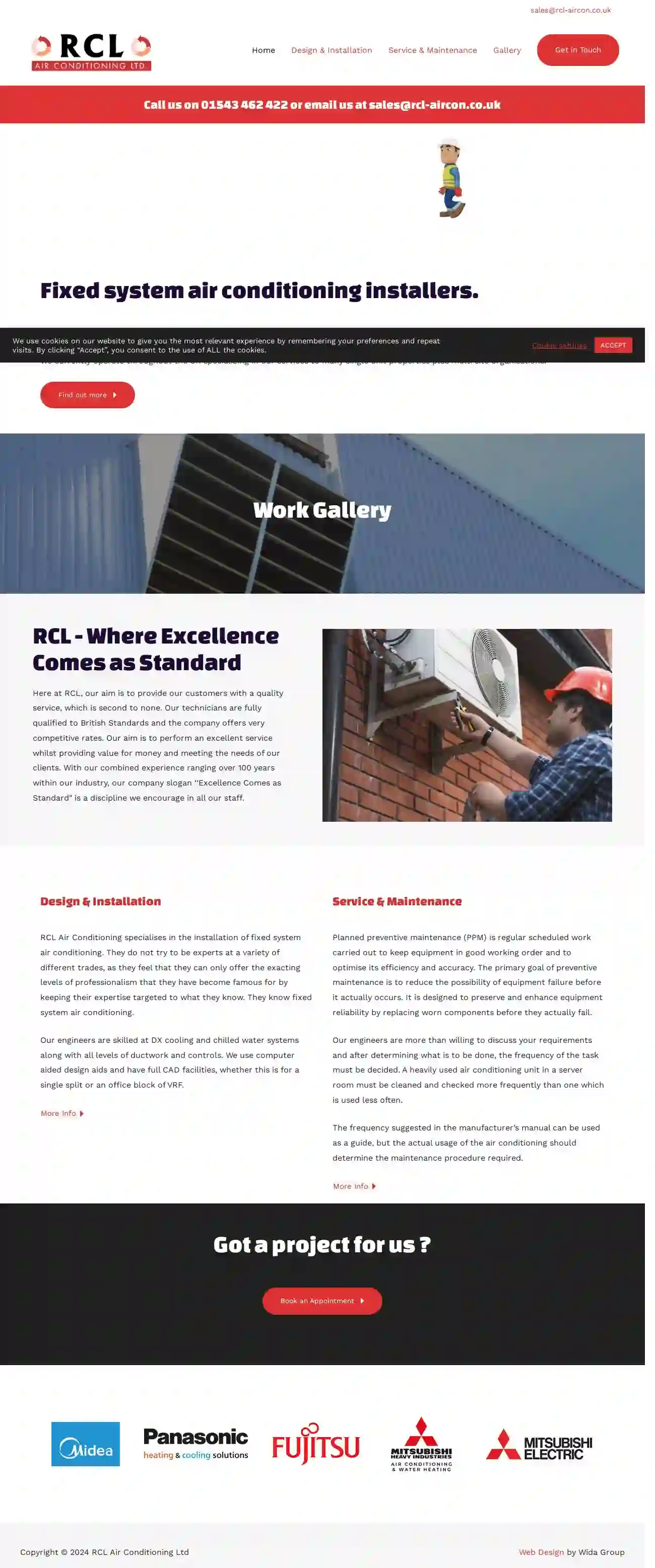
R C L Air Conditioning
54 reviewsHollies Park Road, Unit 2 Hollies Business Park, Cannock, WS11 1DB, GBRCL Air Conditioning Ltd is a fixed system air conditioning installer operating throughout the UK. With over 100 years of combined experience in the industry, our aim is to provide a quality service that is second to none. Our technicians are fully qualified to British Standards and we offer competitive rates. We specialize in the installation of fixed system air conditioning and do not try to be experts at a variety of different trades. Our engineers are skilled at DX cooling and chilled water systems along with all levels of ductwork and controls. We use computer aided design aids and have full CAD facilities. Our goal is to provide an excellent service while providing value for money and meeting the needs of our clients.
- Services
- Why Us?
- Gallery
Get Quote
Over 12,692+ HVAC Contractors on our platform
Our HVAC contractors operate in Audley & surrounding areas!
HVACCompaniesHub has curated and vetted the Best HVAC Businesses arround Audley. Find a trustworthy business today.
Frequently Asked Questions About HVAC Companies
- Frequent Repairs: If your system requires repairs often, it may be more cost-effective to replace it.
- Age of System: HVAC systems typically last 15-20 years. If your system is nearing or beyond that age, it's likely less efficient and more prone to breakdowns.
- Increased Energy Bills: A significant rise in energy bills could indicate your system is losing efficiency and needs replacement.
- Uneven Temperatures: If some rooms are too hot or too cold, it could be a sign of ductwork problems or an undersized/aging system.
- Poor Indoor Air Quality: If you're experiencing allergies, dust, or other indoor air quality issues, a new HVAC system with better filtration could help.
- Strange Noises or Smells: Unusual noises or foul odors emanating from your HVAC system could signal the need for a new HVAC system.
- Experience: Choose a contractor with extensive experience in the HVAC industry, especially in the type of service you need.
- Licensing and Insurance: Verify that the contractor is properly licensed and insured.
- Certifications: Look for NATE (North American Technician Excellence) certification, which indicates a high level of technical competency.
- Reputation: Check online reviews and ratings to assess the contractor's reputation and customer satisfaction levels.
- References: Ask for references from past customers and contact them to inquire about their experience.
- Estimates and Quotes: Get written estimates or quotes from multiple contractors to compare pricing and services.
- Warranty Information: Ask about warranties on equipment and labor.
- Communication: Effective communication is key. Choose a contractor who responds promptly and clearly answers your questions.
- Regular Air Filter Replacement: Change or clean your HVAC system’s air filters regularly (every 1-3 months).
- Professional Air Duct Cleaning: Have your air ducts cleaned by professionals every few years to eliminate dust, mold, and other contaminants.
- Improve Ventilation: Ensure adequate ventilation in your home to bring in fresh air and exhaust stale air. Use exhaust fans in kitchens and bathrooms.
- Control Humidity Levels: Use a humidifier or dehumidifier to maintain optimal humidity levels and prevent mold growth.
- Clean Regularly: Dust and vacuum frequently to minimize airborne particles.
- Avoid Smoking Indoors: Smoking indoors significantly reduces IAQ.
- Use Natural Cleaning Products: Opt for natural cleaning products that don’t release harmful VOCs (volatile organic compounds).
- Monitor Indoor Air Quality: Consider using an indoor air quality monitor to track pollutant levels.
- Climate: Heat pumps are generally more efficient in moderate climates, while furnaces are better for colder regions.
- Budget: The upfront cost of different systems can vary significantly.
- Energy Efficiency Goals: Higher-efficiency systems are usually more expensive upfront but result in lower energy bills over time.
- Home Size and Layout: The square footage and layout of your home affect the system's capacity and ductwork requirements.
- Existing Ductwork: If you have existing ductwork, you'll need a system compatible with it.
What are the signs that I need a new HVAC system?
How do I choose the right HVAC contractor?
How can I improve my home's indoor air quality?
What type of HVAC system is best for my home?
What are the signs that I need a new HVAC system?
- Frequent Repairs: If your system requires repairs often, it may be more cost-effective to replace it.
- Age of System: HVAC systems typically last 15-20 years. If your system is nearing or beyond that age, it's likely less efficient and more prone to breakdowns.
- Increased Energy Bills: A significant rise in energy bills could indicate your system is losing efficiency and needs replacement.
- Uneven Temperatures: If some rooms are too hot or too cold, it could be a sign of an inefficient HVAC system.
- Poor Indoor Air Quality: If you're experiencing allergies, dust, or other indoor air quality issues, a new HVAC system with better filtration could help.
- Strange Noises or Smells: Unusual noises or foul odors emanating from your HVAC system could signal the need for a new HVAC system.
How do I choose the right HVAC contractor?
- Experience: Choose a contractor with extensive experience in the HVAC industry, especially in the type of service you need.
- Licensing and Insurance: Verify that the contractor is properly licensed and insured.
- Certifications: Look for NATE (North American Technician Excellence) certification, which indicates a high level of technical competency.
- Reputation: Check online reviews and ratings to assess the contractor's reputation and customer satisfaction levels.
- References: Ask for references from past customers and contact them to inquire about their experience.
- Estimates and Quotes: Get written estimates or quotes from multiple contractors to compare pricing and services.
- Warranty Information: Ask about warranties on equipment and labor.
- Communication: Effective communication is key. Choose a contractor who responds promptly and clearly answers your questions.
How can I improve my home's indoor air quality?
- Regular Air Filter Replacement: Change or clean your HVAC system’s air filters regularly (every 1-3 months).
- Professional Air Duct Cleaning: Have your air ducts cleaned by professionals every few years to eliminate dust, mold, and other contaminants.
- Improve Ventilation: Ensure adequate ventilation in your home to bring in fresh air and exhaust stale air. Use exhaust fans in kitchens and bathrooms.
- Control Humidity Levels: Use a humidifier or dehumidifier to maintain optimal humidity levels and prevent mold growth.
- Clean Regularly: Dust and vacuum frequently to minimize airborne particles.
- Avoid Smoking Indoors: Smoking indoors significantly reduces IAQ.
- Use Natural Cleaning Products: Opt for natural cleaning products that don’t release harmful VOCs (volatile organic compounds).
- Monitor Indoor Air Quality: Consider using an indoor air quality monitor to track pollutant levels.
What type of HVAC system is best for my home?
- Climate: Heat pumps are generally more efficient in moderate climates, while furnaces are better for colder regions.
- Budget: The upfront cost of different systems can vary significantly.
- Energy Efficiency Goals: Higher-efficiency systems are usually more expensive upfront but result in lower energy bills over time.
- Home Size and Layout: The square footage and layout of your home affect the system's capacity and ductwork requirements.
- Existing Ductwork: If you have existing ductwork, you'll need a system compatible with it.